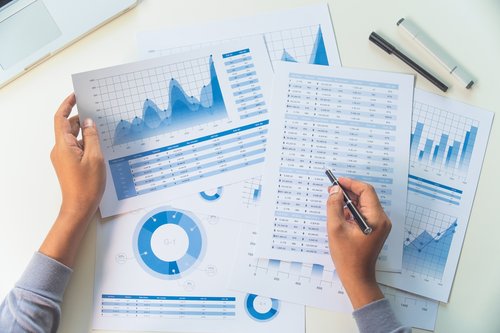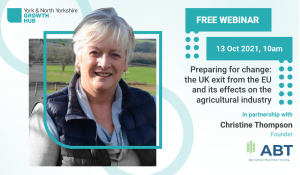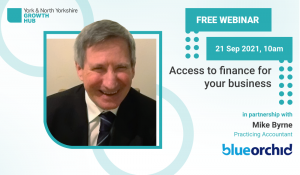Claiming expenses when running a small business from home
Claiming expenses when running a small business from home can be complex. As such, we are going to help you get to grips with what expenses you can claim for your small business in York and North Yorkshire.
When you are self-employed, your business will have various running costs that you can deduct to work out your taxable profit.
There are lots of expenses in a business that you can claim for. If you use something for both business and private purposes, you need to pro-rata the cost to the business. For example, a phone bill may be £100, if £60 was private calls you can then only claim £40 against the business. As with all expenses, this will need to be evidenced.
- Claiming expenses on premises
If you run your small business from home, you will be able to claim a proportion of your costs for heating, electricity, council tax and phone usage.
However, you will need to find a reasonable and fair method of establishing your costs, i.e. by the number of rooms you use for the business and the amount of time you spend working from home. The simplified allowable expenses calculator from GOV.UK may support you with this.
You could use the flat rate scheme based purely on the hours you are working from home each month. The flat rate does not include telephone or internet bills, so you can claim these by working out the actual costs.
If you have premises, you may be able to claim for the rent, utilities, business and water rates, property insurance, maintenance and security.
Learn more about the regulations around running your business from home.
- Vehicle/travel expenses
Travel is an expense that you may be unable to avoid. The purchase cost of the vehicle is a capital item, so is dealt with through ‘capital allowances’. If you have bought a van, it may be eligible for the annual investment allowance (AIA).
When the vehicle is in the business, you can claim for expenses such as vehicle insurance, repairs and servicing, fuel, parking, licence fees and breakdown cover.
However, remember that you will need to work out any private mileage and claim the appropriate percentage only. You may decide a more straightforward way is to claim £0.45/mile instead if your mileage is in excess of 10,000. This will reduce to £0.25/mile thereafter.
You can also claim train, air and taxi fares, as well as hotel rooms and meals on overnight business trips.
You cannot claim non-business driving and travel costs, any fines you incur or travel between home and your usual place of work i.e. an office or a shop.
- Clothing
You can claim for any uniform you may wear i.e. showing the business logo, protective clothing or costumes. Claiming expenses when working from home is not likely to include your clothing as you will not require any specialist items.
Claiming expenses when running a small business from home does not include everyday clothing.
- Staff
Staff costs can also be tax deductible, so you can claim for salaries, bonuses, pensions, sub-contractors and employers national insurance. However, you cannot claim for carers, domestic help or nursery fees.
- Legal and finance
Accounts, solicitors and surveyors are all allowable business expenses when utilised for business purposes. However, fines are not allowable.
Bank charges, overdraft and credit card charges, along with interest on loans are allowable, however, you cannot claim for repayment of loans, overdrafts or finance arrangements.
- Insurance policies
You can claim for any insurance policy for your business, for example public liability insurance.
- Marketing, entertainment and subscriptions
Advertising, mail shots, samples and cost of website can all be claimed along with any subscriptions to trade appropriate journals, trade membership or professional organisations and networking groups.
You cannot claim for entertaining clients, suppliers or event hospitality. Neither can you claim for payments to political parties, gym membership or donations to charity. However, sponsorship payments may be permitted. Learn more about marketing for start-ups and small businesses.
- Training
It is not possible to claim the cost of a training or course fee for tax purposes if the object is to learn a new skill or qualification. To give an example of a disallowed expense: Mary is a self-employed personal trainer, she has always had a desire to study accountancy and attends a college course. The cost is not allowed, as this is a new qualification. Incidental costs such as travel, stationery and subsistence are not allowed.
Ongoing training and development (once a knowledge, skill or qualification is acquired), the cost of updating or continuing development are allowed for tax purposes.
When claiming expenses, you are obliged to keep records of all your business income and expenditure along with records of your personal income. If you are in a partnership and you are the nominated partner, then you need to keep all records for the partnership. Records must be kept for six years and be available upon request from HMRC.
Contact York & North Yorkshire Growth Hub today and receive support to start, grow or scale your business.
Claiming expenses when running a small business from home
Claiming expenses when running a small business from home can be complex. As such, we are going to help you get to grips with what you can claim for...
Types of crowdfunding
Crowdfunding had enjoyed a meteoric rise in growth and popularity. But what is it?
What alternative funds are available for investment or expansion?
There is plenty of support and alternative funds available for start-ups and growing SMEs seeking financial support...
External investment for your business and where to find it?
If you would benefit from some external investment for your business, your next step is to find the right source of finance.
Available funding schemes for business
Support is available to businesses during the Coronavirus...
Funding Growth
This webinar will provide you with a summary of all the commercial funding options available to businesses, with detail on how to make your business more attractive to funders.
Free Webinar : Show Me The Money!
This webinar guides you through the funding options that are available to new and early-stage businesses, to help your business thrive now and in the future.
Free agricultural webinar: Preparing for change pt. 1
This free webinar with Agricultural Business Training (ABT) will help you understand how income could be affected by change, what opportunities lie ahead in the agricultural industry, and where you can gain further information and support.
Free webinar: Access to finance for your business
This webinar will identify and explain the sources of financial support for new businesses, guiding you through the process of cash flow management as a start-up in the wake of COVID-19 and the years to come.
Webinar: Cash is King - How to Forecast Cash Flow
This free webinar with business coach Gareth Allen will provide attendees with a better understanding of the importance of cash within a business.











